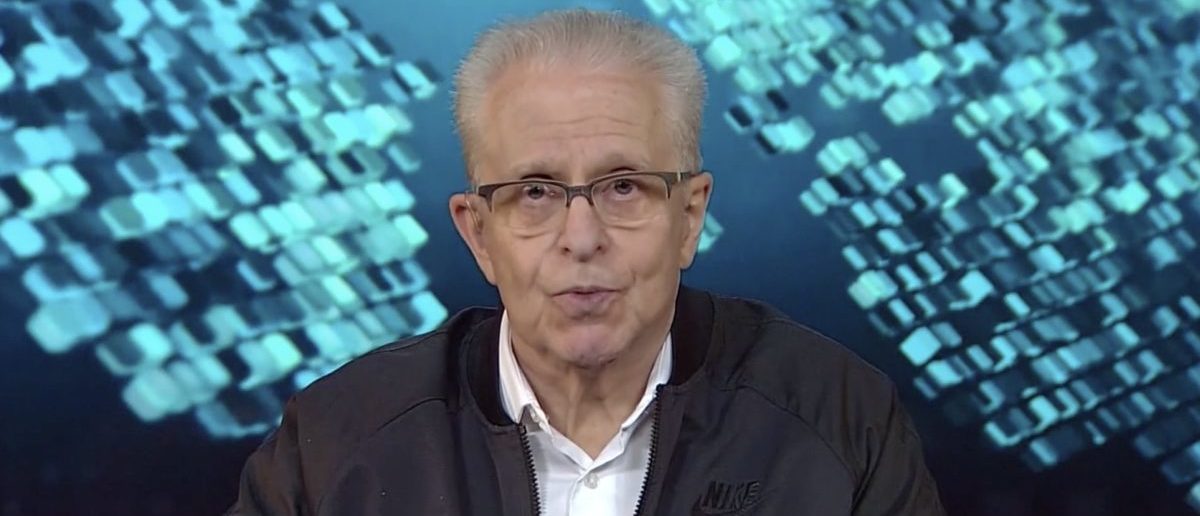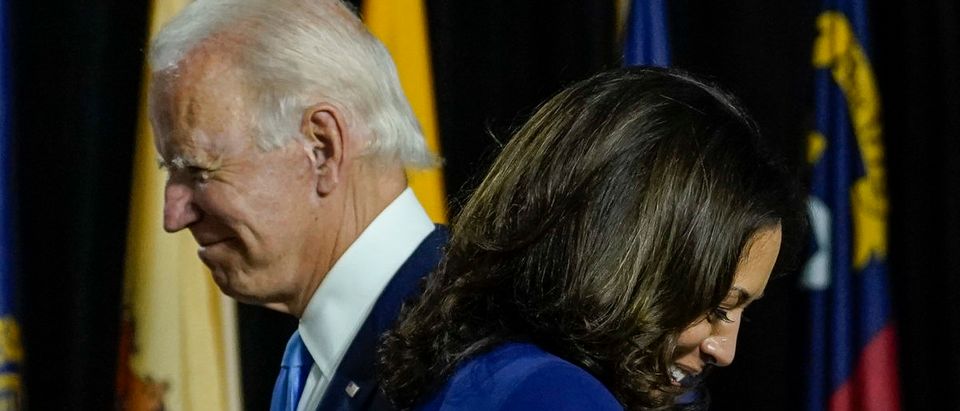Laurence Tribe, a Harvard Law professor and legal ally of President Joe Biden’s administration, has stated that vice presidents do not have the authority to make a tie-breaking vote for a Supreme Court nominee’s approval in the Senate.
News of Justice Stephen Breyer’s intent to retire broke Wednesday, though the 87-year-old has not formally announced the move. The news puts Biden in the position of having to pass a nominee through a 50-50 Senate, raising the question of whether Harris can cast a tie-breaking vote. (RELATED: Majority Of Democrats Believe A Straight-Up Conspiracy Theory)
Tribe has previously advised the administration on at least one questionable legal move: the extension of a federal eviction moratorium in August.
Tribe previously weighed in on the issue in September of 2020, when he argued “the vice president doesn’t have the power to break a tie” on an appointment. Tribe made the statement as Republicans were gearing up to approve former President Donald Trump’s final SCOTUS nominee, then-judge Amy Coney Barrett.
“While the vice president has the power to cast a tiebreaking vote to pass a bill, the Constitution does not give him [or her] the power to break ties when it comes to the Senate’s “Advice and Consent” role in approving presidential appointments to the Supreme Court,” he wrote.

Harvard Law professor Laurence Tribe is pictured. (Screenshot/PBS)
Asked about his past position on Wednesday, Tribe was regretful, but didn’t back down.
“I wrote that piece around 15 months ago and have not thought about the issue since,” he said in a statement to RealClearPolitics reporter Philip Wegmann. “I doubt that I would reach a new conclusion upon re-examining the matter even though, given the current political circumstances, I obviously wish the situation were otherwise.”
Full statement to RCP from @tribelaw who Biden personally requested his White House seek out previously for counsel: pic.twitter.com/7E3oqESLUD
— Philip Melanchthon Wegmann (@PhilipWegmann) January 26, 2022
Tribe is not alone in his analysis. Fellow Harvard Law professor and Trump ally Alan Dershowitz also argued against the vice president casting a deciding vote in September 2020, though he stopped short of saying it was truly unconstitutional.
“Until recently, the Senate never had to face these questions. Supreme Court nominees needed a supermajority under the Senate’s rules and traditions. A tie vote defeated a nomination,” Dershowitz wrote at the time. “Partisan decisions by both parties (ending the filibuster and deploying the nuclear option) brought an end to that safeguard. So now all that is required to confirm controversial and divisive Supreme Court nominees is a simple majority. But a tie vote broken by the vice president would weaken even that requirement, encouraging presidents to nominate increasingly divisive justices.”
“In my view, the Framers made a mistake by not requiring a supermajority for the confirmation of a justice to a lifelong term. The requirement of a supermajority — whether of two-thirds or three-fifths — would incentivize a president to nominate consensus candidates who require the votes of at least some senators from the opposing party,” he continued, adding that a decision from senators to allow Pence to cast a deciding vote would push the court “further down the road of divisiveness and politicization.”
White House press secretary Jen Psaki declined to comment Wednesday on anything relating to Breyer’s potential departure until the justice has formally announced his retirement.


